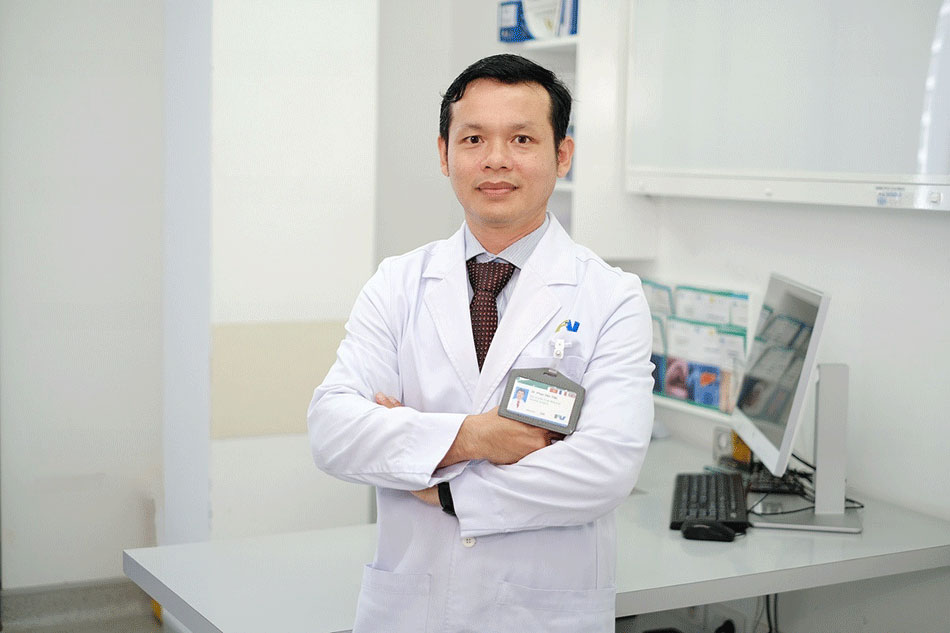Obesity is not only a problem that affects the way you look and feel, and is not simply a metabolic disorder. It can cause many other related diseases, including diabetes, heart disease, high blood pressure and stroke. In complicated obesity treatment cases, it is necessary to combine many specialties such as nutrition, gastroenterology, cardiology, endocrinology, and general surgery to develop an effective, comprehensive treatment solution.
This multi-specialty approach to obesity treatment is commonly applied around the world and in Vietnam, including at FV Hospital.

Obesity is becoming more and more common
To determine if you are obese, your doctor will measure your body mass index (BMI) (the ratio between your weight and your height). A person with a BMI of 30 or higher is defined as obese and needs treatment to prevent serious health problems, including diabetes, heart disease, sleep apnoea, liver disease, and other musculoskeletal problems.
After a multispecialty examination and consultation, depending on the patient’s level of obesity, current physical condition and accompanying diseases, they will be assigned various treatment methods, including nutrition combined with exercise, hormonal medication, and surgical interventions, such as a fat reduction graft, endoscopic gastric balloon, or a stomach narrowing procedure. In cases where surgery is required, doctors will consider the patient’s health before and after treatment.
A patient can lose nearly 40 kilograms in six months with a scientific diet
Dr Nguyen Viet Quynh Thu, Head of Dietetics & Nutrition Department of FV Hospital, shared: “Even patients with a large BMI can still apply weight loss with nutritional therapy to successfully lose weight.”
Mr M., 62 years old, is 162 centimetres tall and weighed 124 kg when he was hospitalised at FV. He had diabetes, abnormal blood lipids and sleep apnoea syndrome, and had to use a CPAP machine to help him breathe at night. Mr M. lost 10 kg in a short amount of time after applying the weight loss programme designed for him by FV’s Nutrition Department. At this point in his treatment, he no longer needed a ventilator and was instructed to exercise for one hour a day and continue his weight loss diet. After seven months, Mr M. had lost a third of his body weight, more than 30 kg of body fat, to weigh 87 kg, and his blood sugar and cholesterol indexes had returned to normal.

Dr Quynh Thu
According to Dr Quynh Thu, the general rule of weight loss is to create a negative energy level by following a diet that delivers fewer calories than the body needs. “The weight-loss method we adopt at FV is different as it doesn’t only focus on body energy limits, but also ensures psycho-physiological balance, helping patients feel comfortable and healthy when losing weight,” says Dr Quynh Thu.
The comfort that Dr Thu refers to is engendered by the heavily personalised nutrition plans developed for individual patients by FV’s specialists. The patient’s menu is built around their eating habits, ensuring the diet is delicious and easy to follow, without the patient feeling that they’re being forced to deprive themselves of everything they enjoy in order to lose weight. FV’s Department of Nutrition and Dietetics also cooperates with the Faculty of Traditional Medicine to improve treatment efficiency. Dr Quynh Thu explains: “The Department of Nutrition will apply energy restriction procedures, while the Department of Traditional Medicine will implant grafts and perform acupuncture to stimulate fat breakdown. The combined approach accelerates the process and ensures optimal outcomes.”

Dr Kha Han
Dr Diec Kha Han, Head of Traditional Medicine at FV Hospital, says that graft implantation for obesity treatment is a gentle, minimally invasive method now widely applied and similar in efficiency to other methods.
Effective treatment of obesity with gastric bypass surgery
Speaking to surgical treatment options for obesity, Dr Phan Van Thai, Head of General Surgery, FV Hospital, says that some obesity cases require the patient’s stomach be reduced. Surgeons use a special stapling machine which cuts the stomach vertically and closes the tissues simultaneously. The resected part of the stomach is removed, leaving the gastrointestinal tract in place without changing its physiology so that it remains fully functional. Following surgery, the stomach will be about 20 per cent of its former volume, around the size of a thumb, which helps to limit the amount of food that a person can ingest. The reduced-size stomach fills up quickly so the patient eats less and yet feels satisfied and no longer has cravings.

Dr Phan Van Thai
“In the last 10 years, this technique has become prioritised by doctors and more popular with patients because it improves the patient’s quality of life and health very quickly. FV Hospital also often applies this option to help severely obese patients lose weight effectively,” adds Dr Phan Van Thai.
When performing gastric bypass surgery at FV, patients are carefully cared for and consulted on nutrition, as well as how to get adequate rest and exercise. They are also provided with psychological therapy so that they can adjust to their regimen and ensure the body adapts well to changes.
The combination of multiple specialties in obesity treatment has many benefits for patients while giving them more choices with regards to safe, sustainable weight loss. As FV is a multi-specialty hospital and provide comprehensive services, including blood tests, X-rays, CT scans and surgery in one location, patients do not need to visit multiple hospitals for care.
Obese patients who would like to book a consultation with a doctor on weight loss methods offered at FV can contact the hotline: (028) 5411 3333.



